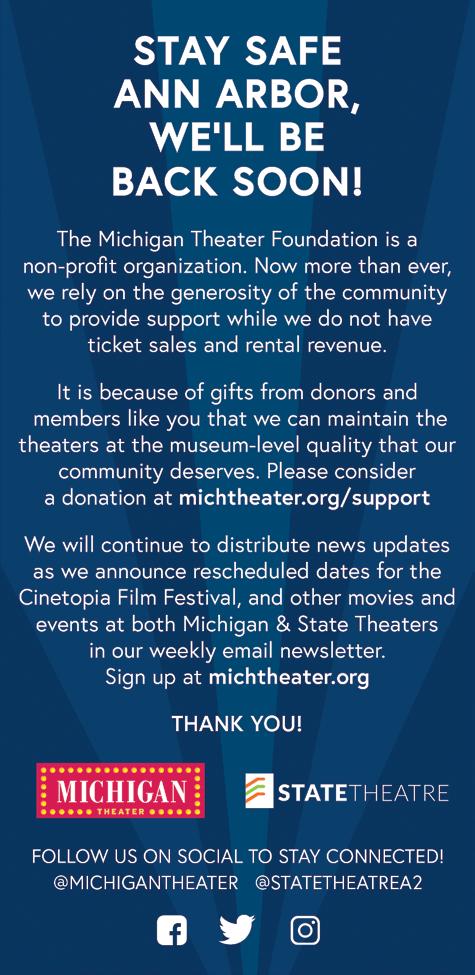
8 minute read
healthy kids
Mindful Parenting The Conscious Path to Raising a Child
by Ronica O’Hara
Lo Bannerman, a Tucson nutritionist, was making homemade cookies with her toddler. “Or rather, making a mess while stirring cookies,” she recalls. “Something in me snapped. I wanted to take control, kick her out of the kitchen and do everything the ‘right’ way.”
As Bannerman took a deep breath, a memory arose. “As a child, I was only allowed to count scoops of flour or teaspoons of vanilla. I was never allowed to fully, actively participate in the kitchen. Everything had to be perfect, and I was not ‘good enough’ to make it so. I felt this in my core. Was I passing this on to my daughter?” Bannerman recalls that, after taking a moment to reset, she and her daughter “happily made a mess, a memory and a foundation for a brighter future together.”
Bannerman, who blogs at Nourishing Families.org, was practicing an increasingly popular approach in raising children known as either conscious, mindful, soulful, awake or peaceful parenting. Instead of focusing on shaping a child’s behavior through rules and discipline, which can bring up contentious issues of fear, ego and control, the focus is on connecting deeply with a child through love, authenticity and acceptance of the child’s innate nature.
“It’s crucial we realize that we aren’t raising a ‘mini-me’, but a spirit, throbbing with its own signature,” says psychologist Shefali Tsabary, Ph.D., author of The Conscious Parent: Transforming Ourselves, Empowering Our Children. “Children aren’t ours to possess or own in any way. When we know this in the depths of our soul, we tailor their raising to their needs rather than molding them to fit our needs.”
The transformation starts with—and hinges upon—parents understanding
Nervous about seeing the Dentist?
Put your mind at ease. Our caring team of professionals uses the latest in sedation dentistry: private rooms, heated massage chairs, memory foam, aromatherapy, calming music, conscious sedation and nitrous oxide.
2365 S. Huron Pkwy | Ann Arbor MI 48104 | 734.887.9667 | annarborsmiles.com
themselves deeply and realizing how their upbringing shapes their parenting actions. It’s not always easy, especially during housebound pandemic months. “Our children have the capacity to trigger us more than anyone else. So, when they exhibit childish behavior—which is, of course, part of their job description—it’s often hard for parents to stay calm,” says Laura Markham, Ph.D., a Brooklyn clinical psychologist and author of Peaceful Parent, Happy Kids.
“We see our child’s behavior (He hit her again!), and we draw a conclusion (He’s going to be a psychopath!) which triggers other conclusions (I’ve failed as a mother!). This cascade of thoughts creates a runaway train of emotions—in this case, fear, dismay, guilt. We can’t bear those feelings. The best defense is a good offense, so we lash out at our child in anger. The whole process takes all of two seconds, and later we wonder why we overreacted.”
The answer often lies in our past, Markham says. “Any issue that makes you feel like lashing out has roots in your own early years. We know this because we lose our ability to think clearly at those moments, and we start acting like children ourselves, throwing our own tantrums.”
The more deeply we know ourselves—whether through therapy, reading, journaling, meditation, mindfulness practices or simply facing head-on the hard knocks of life—the more open we are to forging a deep relationship with our children and the easier it is to calm ourselves in the moment of a trigger, psychologists say.
Correcting a child becomes then a matter of being a guide or coach, rather than a law enforcer. “Disciplining from a place of presence or awakened consciousness means having the willingness to pause, reflect, course-correct as needed in the moment, apologize, take ownership, ask for help and to drop history and reset as needed,” says Renée Peterson Trudeau, the Brevard, North Carolina, author of Nurturing the Soul of Your Family and The Mother’s Guide to Self-Renewal. “Most of all, practice self-compassion. You will make mistakes. Forgive yourself and move on; this is beautiful modeling for your kids.” Helpful Parenting Books The Conscious Parent: Transforming Ourselves, Empowering Our Children, by Shefali Tsabary, Ph.D. An Oprah favorite, she offers videos and other information at DrShefali.com. Peaceful Parent, Happy Kids: How to Stop Yelling and Start Connecting, by Laura Markham, Ph.D. Find videos and other resources at AhaParenting.com. Raising an Emotionally Intelligent Child: The Heart of Parenting, by John Gottman, Ph.D., a marriage and family researcher. Gottman.com/parents offers videos, books and card decks to help develop emotional intelligence in kids. Nurturing the Soul of Your Family: 10 Ways to Reconnect and Find Peace in Everyday Life, by Renée Peterson Trudeau, with more information available at ReneeTrudeau.com. Growing Up Mindful: Essential Practices to Help Children, Teens, and Families Find Balance, Calm, and Resilience, by Christopher Willard, Psy.D. Find talks and workshops at DrChristopherWillard.com.
Jessica Speer, a family-book author in Steamboat Springs, Colorado, lives that process. Raised in a home “where anger wasn’t managed well,” she had no tools to draw on when she got triggered by her toddler’s tantrums. It was, she says, “a wake-up call that I needed help.” Diving deeply into books, mindfulness and meditation helped her to understand herself better. “Fast forward 10 years, and I still meditate regularly,” she says. “Now, when my daughter experiences big emotions, I try to ground myself so I can be there by her side. This has been so healing for both of us.”
Ronica O'Hara is a Denver-based health writer. Connect at OHara Ronica@gmail.com.
Solutions for Pain AND A PATH TOWARD HEALTH & WELLNESS

Dr. Robert Krasnick has been performing regenerative procedures for over 20 years, including Prolotherapy, Platelet Rich Plasma, and Stem Cell Therapy.

In addition, Krasnick Regenerative Medicine is offering IV (intravenous) nutrient infusions, including Myers’ Cocktail, Glutathione, and NAD+. Also offered is UBI (Ultraviolet Blood Irradiation) combined with Ozone therapy. These treatments are designed to support your immune system, decrease inflammation and promote health and healing. If you have chronic pain and are looking for natural alternatives or interested in promoting your health, call today for a free consultation.
210 Little Lake Dr Ste. 8, Ann Arbor (734) 585-5653 • KrasnickRegen.com
“Prolotherapy a wise choice. I am completely healed, and good as new!” – Self-Verified Patient, 01/20/20
Local Investment Landscape is Changing
by Martin Miron
The idea of investing locally seems easy enough; we have capital, we love our community, and we know some business owners have a harder time than others getting the capital they need. State and federal laws have even shifted to increase access to investors and investees in the last decade. But the problem persists.
Revalue is an impact investment firm that studies and influences the underlying principles and priorities of the emerging marketplace while providing direct services to investors. In 2019, they undertook three research partnerships with the Ann Arbor Area Community Foundation, The Initiative for Local Capital and Michigan State University Center for Community and Economic Development. Here are some key findings.
Legal aid services are cost prohibitive. Business owners that need less than $100k will pay a hefty price in both time and money to work with an attorney to register a security, increasing the risk that smaller businesses will curtail securities laws and raise capital in the underground economy.
There is an across-the-board education gap. Not only do investors and

business owners lack access to education about how investing locally works, but technical assistance providers and coaches, accountants, attorneys, bankers, marketing firms and the philanthropic community all reported a thirst for education suited to their perspective.
The Washtenaw County ecosystem moves at least $2 billion in investment capital every year, and 99.4 percent of that is not mission-driven. This county is economically prosperous, highly educated and philanthropically focused. It is also one of the most

economically segregated in the U.S., and health disparities are stark, where black and brown residents are expected to live more than 10 fewer years than white residents. Despite our collective attention on these issues, when it comes to progressing beyond philanthropy into local impact investment to improve people’s lives, our county is arguably starting from scratch. We need mission-driven individual and institutional investors to act and shift the return on investment calculation norm from profit-only to a generative triple bottom line of stewarding people, place, planet and profit.
Micro-economy developers play a crucial unacknowledged role. Economic development is a large and thriving industry which tends to focus on attracting and retaining employers that will bring significant jobs to a given area. However, 70 percent of our workforce is employed by businesses with less than 10 employees. It is common to find one business owner, community center volunteer or nonprofit leader that is single-handedly helping people in that neighborhood start and grow their businesses, often without any dedicated resources or technical assistance. Recognizing these cornerstone community members as a legitimate and important part of local economic development efforts by providing them with training, resources and compensation would go a long way to ensuring that businesses continue to launch and grow directly in and with the capital from the communities in which they serve.
Fear is driving the investment advising industry, which has been so damaged by corruption that regulators have erected onerous rules to ensure protection for clients. This has created a situation where advisors are incentivized to keep assets on Wall Street because the world has generally accepted that Wall Street is risk adverse, even while acknowledging that all investments carry risk. The industry must step up and accept the challenge to provide meaningful and consistent education for advisors.
Revalue is located at 220 W. Michigan Ave., in Ypsilanti. For more information, call 888642-2728 or visit RevalueInvesting.com.











